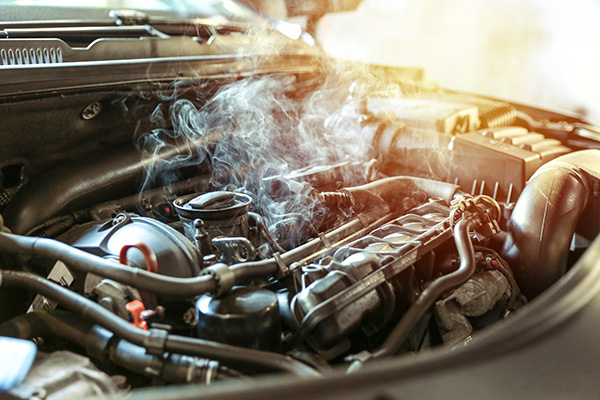
Is your car's cooling system acting up, leaving you puzzled and frustrated? A malfunctioning cooling system can spell trouble for your vehicle, leading to overheating and potential engine damage. But don't - today's article is exactly about that!
The Problem At Hand
Your car's cooling system regulates engine temperature and prevents overheating. When the cooling system fails to function correctly, it can lead to a range of issues, including engine overheating, coolant leaks, and diminished performance.
Common Causes of Cooling System Failures
Low Coolant Level
One of the most common reasons for a malfunctioning cooling system is a low coolant level. Coolant, also known as antifreeze, is essential for absorbing and dissipating heat from the engine. A low coolant level can result from leaks, evaporation, or improper maintenance, leading to insufficient cooling and potential overheating. Regularly check your coolant level and top it up as needed to ensure optimal performance.
Faulty Thermostat
The thermostat is a vital component of the cooling system, regulating the flow of coolant to the radiator based on engine temperature. A malfunctioning thermostat can get stuck in the closed position, preventing coolant from circulating properly and causing overheating. Symptoms of a faulty thermostat include erratic temperature gauge readings and prolonged warm-up times. Replacing the thermostat is often necessary to restore proper cooling system function.
Radiator Issues
The radiator is responsible for dissipating heat from the coolant as it circulates through the engine. Over time, radiator fins can become clogged with debris or corroded, hindering airflow and reducing cooling efficiency. Additionally, leaks or damage to the radiator can result in coolant loss and overheating. Radiator maintenance procedures, including cleaning and inspection, can help prevent these issues and ensure optimal cooling system performance.
Solutions for Cooling System Problems
Check Coolant Levels
While it may seem like a basic step, regularly checking your coolant levels is crucial for maintaining a healthy cooling system. However, it's not just about adding coolant when it's low. Take the extra step to inspect the coolant itself. Over time, coolant can become contaminated with dirt, rust, and other debris, reducing its effectiveness. Consider using a coolant tester to check the quality of your coolant mixture and ensure it's still providing optimal protection against corrosion and overheating.
Inspect for Leaks
Leaks in the cooling system can be elusive, often hiding in hard-to-reach places or only occurring under specific conditions. In addition to visually inspecting your cooling system components for obvious signs of leakage, consider performing a pressure test. This involves pressurizing the cooling system with a specialized tool to simulate operating conditions and pinpoint any leaks more accurately.
Remember, even small leaks can lead to significant coolant loss over time, so it's essential to address them promptly to avoid overheating and potential engine damage.
Test the Thermostat
While a malfunctioning thermostat is a common culprit behind cooling system issues, diagnosing it accurately can be tricky. Beyond simply testing whether the thermostat opens and closes, consider checking its calibration. A thermostat that opens too early or too late can disrupt the engine's temperature regulation, leading to inefficient cooling or overheating. Consult your vehicle's service manual for specific testing procedures or seek assistance from a qualified mechanic to ensure your thermostat is operating correctly.
Flush the Cooling System
The maintenance task of flushing the cooling system is often neglected, but it can significantly impact its performance and longevity. Over time, the coolant can break down and become contaminated with rust, scale, and other debris, impairing its ability to absorb and dissipate heat effectively.
While many vehicle owners are aware of the importance of periodic coolant flushes, they may not realize that flushing alone may not be enough. Consider including a chemical flush treatment in your coolant flush routine to ensure that your cooling system is restored to peak efficiency. These treatments are formulated to dissolve stubborn deposits and flush out contaminants more thoroughly.
The best thing you can do is call and schedule an appointment at Cottman of Waldorf. We will take care of the cooling system, engine, suspension, tires, and basically everything else!